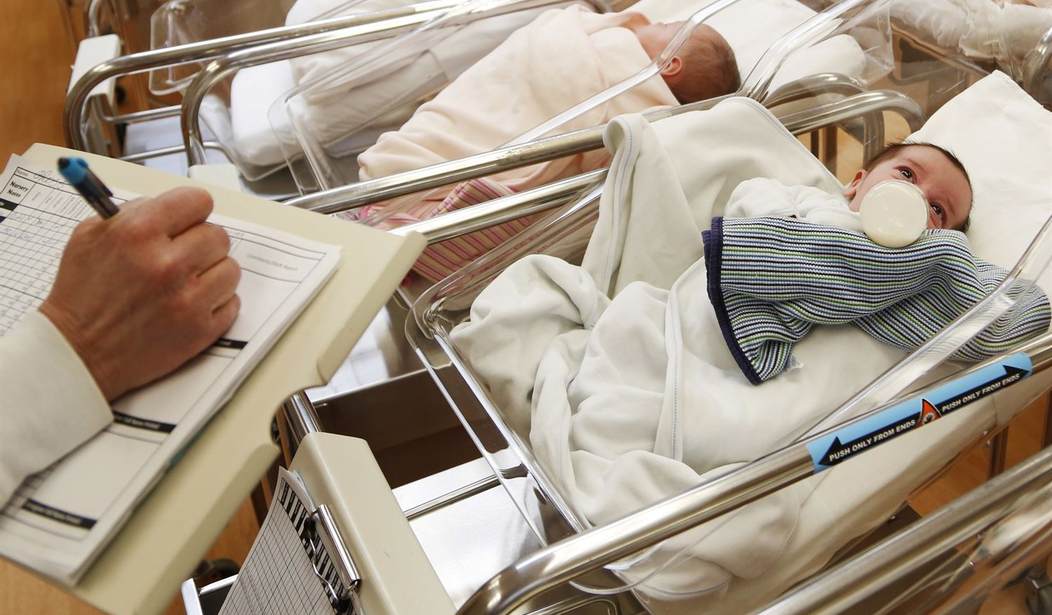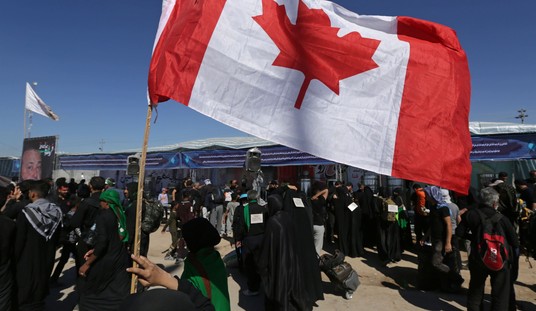There’s been a policy change made by the Biden administration that affects questions of citizenship. But this time we’re not talking about amnesty for millions of illegal aliens or sanctuary claims made at the border. There have been a number of issues, some resulting in lawsuits, encountered by parents living abroad who give birth to children either through in vitro fertilization or using surrogate mothers. Even if one or both of the parents hold American citizenship, these medical practices have resulted in requests for birth certificates and citizenship for the baby being denied due to long-standing federal laws. This week, the State Department announced that it was amending its policies to approve citizenship for the child under a variety of circumstances. Most of these seem understandable, but there will still be some cases where this generosity may wind up being in violation of the law. (ABC News)
The State Department will now grant U.S. citizenship to children born overseas to same-sex and heterosexual American couples through in vitro fertilization, surrogacy and other assisted reproductive technology, the agency said Tuesday, notifying all U.S. posts overseas and Congress of the historic change.
The new policy comes after the agency has recently faced several lawsuits brought by same-sex couples suing for their children’s citizenship — losing two federal cases last year.
The Trump administration had been fighting those losses, including by filing an appeal last August, and defending what had been longstanding U.S. policy that considered children born abroad to a surrogate to be born “out of wedlock” even when a couple was married.
This is a complicated question because of the way the laws have typically been interpreted. In case you’re not familiar, the federal laws defining who is considered a “natural born citizen” are found in Title 8, Chapter 12. Most of them are fairly straightforward. Children who are born while physically in the United States or its territories and who are subject to the jurisdiction of the United States government are considered citizens automatically. Provisions are provided for children born to American citizens living abroad under specified circumstances.
But these laws were clearly written before advancements in medical technology allowed for surrogate births. The ABC News article seems to be trying to treat this as a same-sex marriage question, but it can apply to virtually anyone. There are a couple of factors being debated, and I’m not sure that the State Department has considered all of the angles here.
They are discussing a few different birthing situations, but the most obviously complicating one is the surrogate mother question. This has led the State Department to consider issues of “genetic or gestational ties” between a baby and its biological parents in terms of the parents’ citizenship status. In one example, a married gay couple arranged for the services of a surrogate to give birth to a child. Only one of the men could have been the biological father. So if the female surrogate who carried and delivered the child isn’t a US citizen and the biological father isn’t either, the child has no claim to citizenship even if the other member of the couple is, as there is no “genetic or gestational” tie between the baby and a citizen.
If, on the other hand, the biological father is a citizen, then the baby might qualify for birthright citizenship under 8 U.S. Code § 1401 (e) or (g). But in that case, the father would need to have resided in the United States for a continuous period of one year prior to the birth or been present in the United States or its territories “for a period or periods totaling not less than five years” prior to the birth. (I told you… it can get complicated.)
If the State Department is ordering such children as described above to be granted citizenship but the biological parent doesn’t meet the residency requirements, they’re probably breaking the law. That may not seem fair, but if you want to handle it differently you’ll need to convince Congress to change the laws to allow for surrogacy situations.
Some of the other complaints being addressed seem a bit easier to resolve. There were complaints raised about surrogacy births because the biological mother who gave birth was technically “out of wedlock.” This is an interpretation that’s frequently been used in the past, but it’s only an interpretation. 8 U.S. Code § 1401 says nothing about the marital status of the parents. They simply need to be the biological mother or father of the child. I also don’t see why in vitro fertilization is even a factor. If the sperm and the egg are combined in a test tube and then implanted in whoever is being designated as the mother, the only question should be the citizenship status of the two donors, as described above.
In some ways, it might be nice to have the laws updated to help out infertile parents who are seeking a child through surrogacy. But if we let Congress crack these laws open for a fresh look in 2021 I can’t even begin to imagine what they would try to cram in there in terms of defining who can be a man or a woman or anything else without shoveling tons of transgender language into the books.








